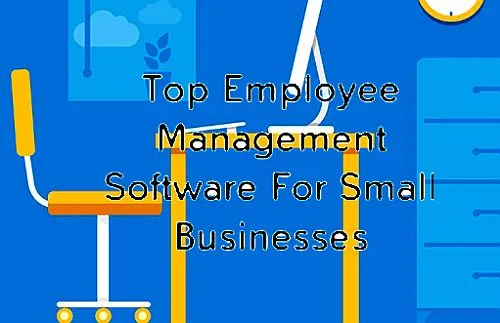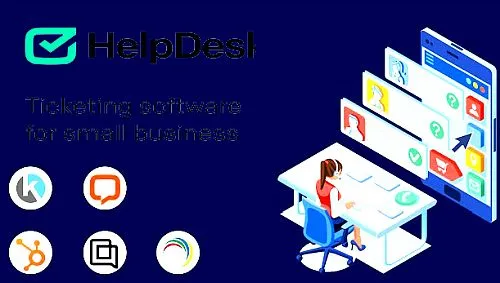Employee Management Software for Small Business
Below are a few HR software recommendations tailored specifically for small and medium-sized businesses (SMBs):
- BambooHR is an excellent option for small businesses that need powerful employee management software that offers comprehensive HR solutions.
- The TriNet HR Platform is widely recognized for its fundamental HR functionalities, establishing itself as a reliable choice suitable for businesses across different scales.
- Rippling is advantageous for rapidly expanding businesses, delivering robust HR solutions tailored to their needs.
- Paycor is specifically designed for midsize businesses, offering a range of features within its employee management software suite that cater to the needs of small businesses.
- UKG Ready stands out for its advanced analytics capabilities, making it an ideal option for businesses to gain comprehensive insights into their operations.
Honorable mentions:
- Gusto provides intuitive solutions and proves to be an excellent starting point for small businesses exploring HR software.
- RUN Powered by ADP offers dependable payroll services, making it a trusted choice for small companies.
- Zoho People is acknowledged for its affordability, delivering various HR software features at a competitive price point
Which HR software is optimal for small businesses looking for employee management solutions?
Small and medium-sized businesses (SMBs) require Employee Management Software for Small Business to streamline routine HR tasks, centralize employee records, and align with overarching company goals.
My selections prioritize versatile all-in-one HR solutions to fulfill your immediate requirements while providing features to bolster strategic people operations as your business expands.
How to Choose HR Software
Employee Management Software for Small Businesses offers solutions to various challenges and improves numerous workflows tailored for small businesses. To discover the most fitting HR software for your small business, it’s essential to pinpoint your primary users and document their specific challenges.
Consider the following points as you navigate through your personal HR software selection process:
The first step in selecting the appropriate Employee Management Software for Small Business involves recognizing your challenges. This will help pinpoint the specific features and functionalities the software needs to address your requirements effectively.
Then, contemplate who will utilize the software and determine the licenses you’ll need. This evaluation will provide insight into the costs and prerequisites involved.
Readmore Globalization Partners International Agency June 2024
Employee Management Software
Determine whether senior HR professionals will be the exclusive users or the entire department will utilize it. Additionally, prioritize the needs of various users to rank features for HR software power users, managers, and employees accordingly.
Clearly outlining the essential integrations for HR software is vital to ensure seamless implementation. This includes identifying which tools will be replaced, retained, or newly integrated, such as accounting, time-tracking, or payroll software. It’s also crucial to evaluate whether an all-in-one Employee Management Software for Small Businesses can effectively replace these tools.
Organization’s Business
Define the desired outcomes you aim to achieve using HR software. This might include enhancing employee self-service features, increasing team recognition, or streamlining leave approval processes.
A clear grasp of these objectives will guide your software selection process, ensuring that you prioritize features that align with your goals.
Evaluate how the Employee Management Software for Small Business will integrate with your organization’s existing workflows and systems. Identify areas where the software can improve efficiency and address any existing issues.
Finally, remember that every business is unique, so don’t assume that widely used HR systems will automatically suit your small business. Customize your selection process to align with your specific needs and objectives.
Selecting the Best Employee Management Apps
Choosing the right Employee Management Software for Small businesses can significantly improve productivity, efficiency, and overall business success. When making your decision, consider these critical factors:
- Scalability is paramount. Choose an application that can expand alongside your business. Consider your current team size and potential future growth. The leading apps offer scalability and adapt to your organization’s changing requirements.
- Look for applications with user-friendly interfaces featuring intuitive designs, straightforward navigation, and minimal learning curves. A user-friendly interface is crucial for your team’s seamless adoption and swift onboarding.
- Tailored Features: Identify your specific requirements and opt for an application that fulfills them. Whether you need time tracking, performance evaluations, or onboarding tools, select an app that aligns with your unique business processes.
- Integration Capabilities: The best employee management apps seamlessly integrate with other tools your business utilizes, such as accounting software, communication platforms, or project management tools. Integration enhances overall workflow efficiency.
- Data Security: As employee data is sensitive, ensure the app adheres to industry-standard security protocols and regulations. Look for features like role-based access control and data encryption to protect sensitive information effectively.
- Cost-effectiveness: Choose an application that offers value for money, providing essential features without unnecessary expenses. Many apps offer tiered pricing structures to suit various business sizes.
- Customer Support: Evaluate the quality of customer support the app’s vendor provides. Responsive customer service ensures timely assistance in case of issues or queries, minimizing disruptions to your operations.
FAQs
1- What Is HR Employee Management?
HR Employee Management involves strategically overseeing and organizing an organization’s workforce. It encompasses recruitment, onboarding, performance evaluation, and employee development.
2- Is Employee Management A Skill?
Employee management is widely acknowledged as a skill that entails leadership, communication, conflict resolution, and the capacity to motivate and guide a team.
Proficient employee management skills are essential for nurturing a positive work culture, enhancing productivity, and driving overall organizational success.










